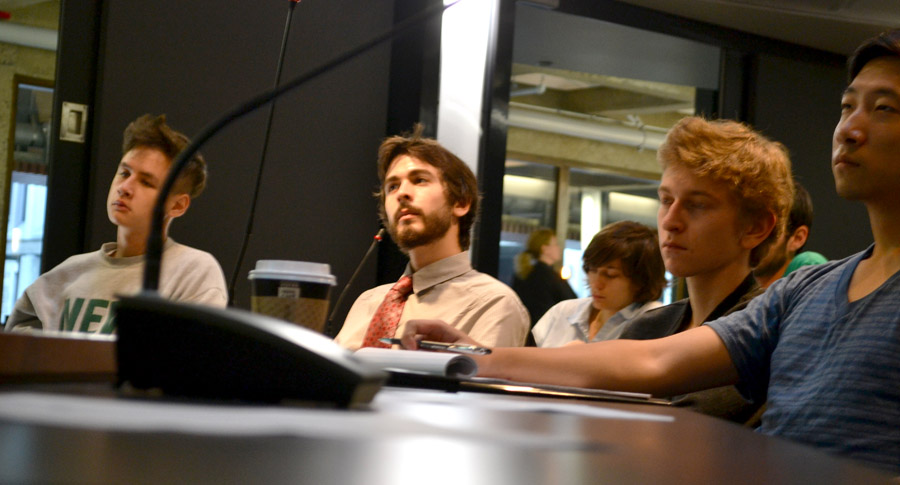Last Thursday, McGill’s Research Group on Constitutional Studies (RGCS) hosted scholar Jeremy Waldron in Leacock 232 for a lecture entitled “Constitutionalism: A Skeptical View.”
Waldron is a professor of law and philosophy at New York University, and Chichele professor of social and political theory at All Souls College, Oxford. With work spanning over two decades, Waldron has become an outspoken critic of torture and judicial review. He is also a member of the American Academy of Arts and Sciences.
Waldron’s lecture was the first in a series planned by the RGCS. The RGCS brings together McGill scholars in the departments of political science and philosophy, as well as from the Faculty of Law.
According to Dr. Jacob Levy, coordinator of RGCS and Tomlinson professor of political theory at McGill, the primary interest of the RGCS lies in “studying the values, institutions, and processes that go into making up […] democratic and constitutional orders.”
“We thought that a lecture series […] would help bring problems of inquiry into the nature of a free society to a broader undergraduate audience,” Levy explained. “Waldron’s arguments about constitutionalism […] have, for two decades now, been really fascinatingly controversial in the intellectual and academic world.”
The lecture’s attendees included students and faculty from a variety of disciplines. Though Waldron’s arrival was delayed, the crowd stayed in high spirits, warmly greeting Waldron with applause upon his eventual arrival.
Throughout the lecture, Waldron expressed skepticism towards views commonly associated with the word “constitutionalism”—in particular the idea that constitutions are solely means for limiting or controlling the state. Waldron said that he believes such a perspective looks at government through the lens of a false dichotomy—one that takes constitutions as dictating either what is permitted or prohibited, while forgetting that constitutions often include principles of a third category: obligations.
Waldron also raised concerns over potential tensions between constitutionalism and democracy.
“I think when constitutionalism [views] democracy, it thinks about something distasteful, or antagonistic, or something that needs to be very, very carefully brought under constraint,” Waldron said.

Waldron pointed to how the obligations that constitutions set on the state may, in fact, foster democracy.
“Empowering ordinary people, ensuring the fair value of political equality, is also something that won’t happen by magic,” Waldron said. “It usually means giving power to people who, if things are left to themselves in the ordinary way, won’t have power.”
“Democracy is never the default mode of operation of a political system,” Waldron continued. “Democracy is something that has to be concocted, noted, [and] sustained against all sorts of possible attacks.”
The lecture also touched on other issues, from the “ancestor worship” for drafters of the American constitution, to the way global ethical norms, such as those concerning human rights, may become international law, subsequently influencing the constitution and legal system of individual states.
Many students’ reception to the lecture was warm.
“I think my favourite part of the lecture was when, at the very beginning, Waldron said it’s unfortunate that it’s almost taboo to say today that you’re not a constitutionalist,” Diane Shnier, U1 arts and member of the RGCS, said. “I like that he’s willing—tentatively, at least in this case—to go against the status quo.”
“I’m going to take away [the idea that] constitutionalism based on limitation, restraint, and control is maybe too narrow a view,” Matthew Finn, a fourth-year law student, said.
When asked what he hoped students will gain from the experience, Levy replied encouragingly.
“[I hope they will gain] a desire to keep thinking, keep reading, keep arguing, keep engaging on their own,” Levy said. “There’s more intellectual work to be done, and I want to inspire students to do it themselves.”
Waldron’s lecture will be followed by scholars from Brown, University of San Diego, and Stanford, including a lecture by Leif Wenar of King’s College London this Thursday, titled “Oil, Dictators & Civil Wars: Our Contributions, Our Solutions” at 4:30 p.m. in Ferrier 456.
Full disclosure: Chris Liu is an undergraduate fellow of the RGCS.







